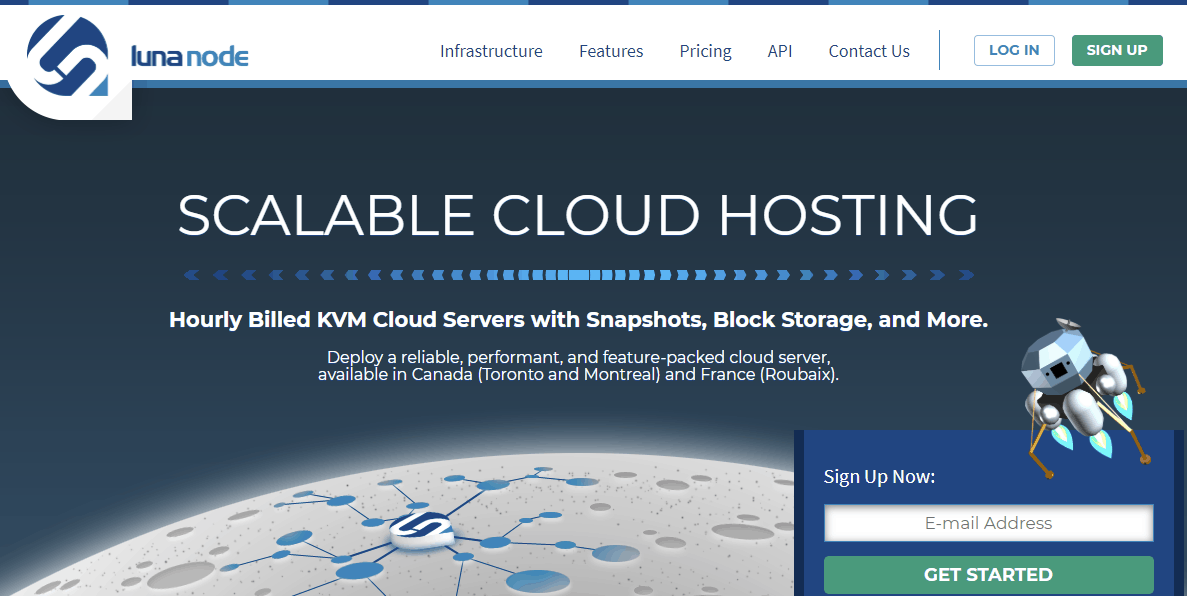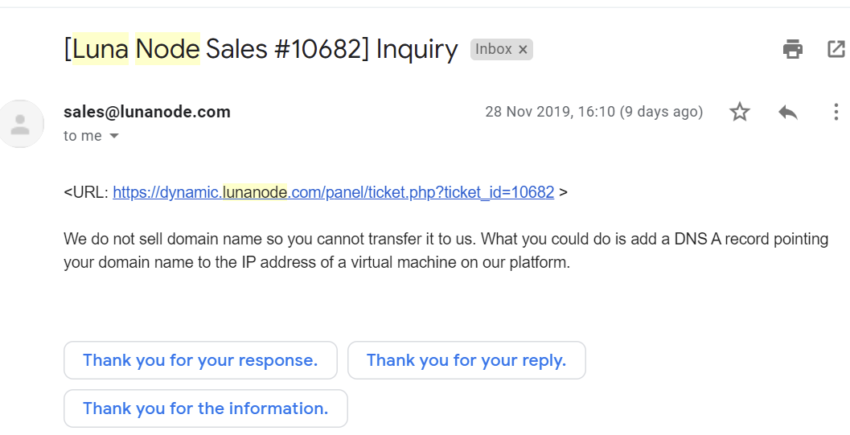
LunaNode is a Canadian company that provides cloud infrastructure for clients to host their websites using virtual machines, block storage, and other features. It uses three data centers located in Canada and France. Its website is in English.
Features and Ease of Use
The features of LunaNode’s virtual machines include:
- From 15GB to 1500GB disk space
- From 100GB to 10,000GB bandwidth
LunaNode offers three major sets of virtual machine plans. The first is the General Purpose plans which come with average CPU, memory, and storage requirements to host a range of web applications and other server applications.
Then, there are the Memory Optimized plans suitable for higher than average CPU and memory requirements. The third set of plans are the Compute Oriented plans, which are designed with dedicated CPU cores, ample memory, and storage resources for intensive applications like encoding.
In the shopping cart, there are two more sets of virtual machine plans similar to those mentioned above.
LunaNode’s cloud infrastructure utilizes Intel Xeon processors on all its servers coupled with KVM virtualization. When creating your virtual machine you can select templates from Ubuntu, Debian, Fedora, CentOS, OpenSUSE, and FreeBSD operating systems. You can also upload a custom ISO and qcow2 images to provision the virtual machines from any operating system using the web console.
Apart from the web console, access to and management of the virtual machine can be done through SSH connection. This is all great but won’t work so well for beginners that don’t know their way around these features.
LunaNode helps beginners to an extent with the OS installation and an option to select pre-installed software such as Dokku, Gitlab, LAMP, LEMP, and WordPress from the shopping cart.
You can carry out a snapshot function to capture the current disk state of your virtual machine for backups and cloning purposes. You can then reconfigure your virtual machine after it is recreated from the snapshot with bash and cloud-init startup scripts.
Each virtual machine comes with a private and isolated network. Although they can communicate with each other in the same region, you also can define the allowable traffic network to isolate untrusted machines.
LunaNode utilizes redundant SSD drives for data storage. Detachable block storage, known as volumes, can also be added to the machine as a form of extra storage.
Pricing and Support
LunaNode’s pricing is great. Firstly, all plans are billed hourly, offering a good level of flexibility to clients. Then, from the lowest to the highest plan, all prices are worth the resources you’ll be getting. Even startups can comfortably pay for a plan without spending too much money.
Functions like block storage, snapshots, floating IPs, and additional bandwidth come with separate fees, though. These fees are at an hourly rate, too.
LunaNode has a function called Shelving, which helps to reduce costs by de-allocating unused CPU and memory resources so that you’ll only have to pay for IP addresses and storage.
To initiate payments, you’ll need to fund your wallet with a benchmarked fee via PayPal, credit card, Bitcoin, or BitPay. Subsequently, we will bill your usage on an hourly basis from the wallet.
Support can be reached through email, ticketing system, and phone. I sent an email and got a response shortly after.

 Website Planet
Website Planet










